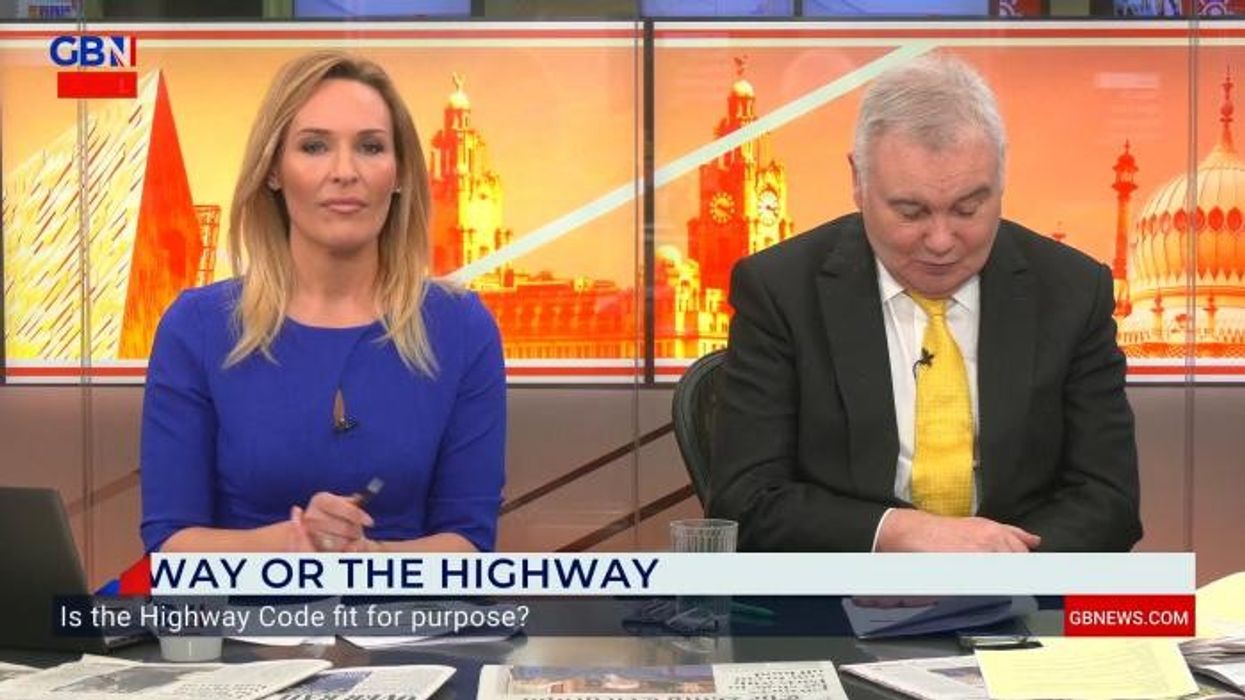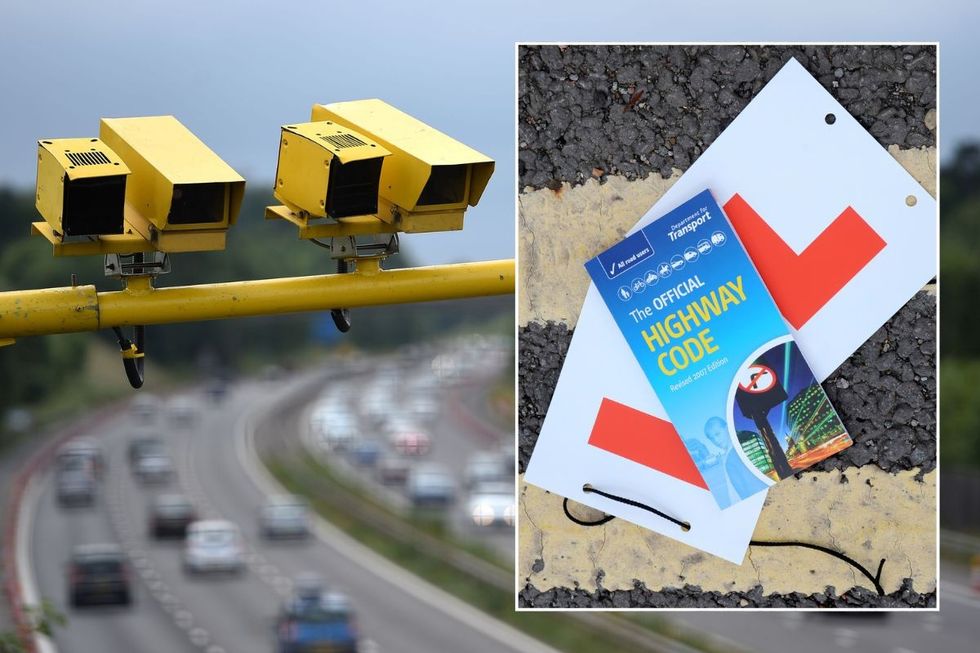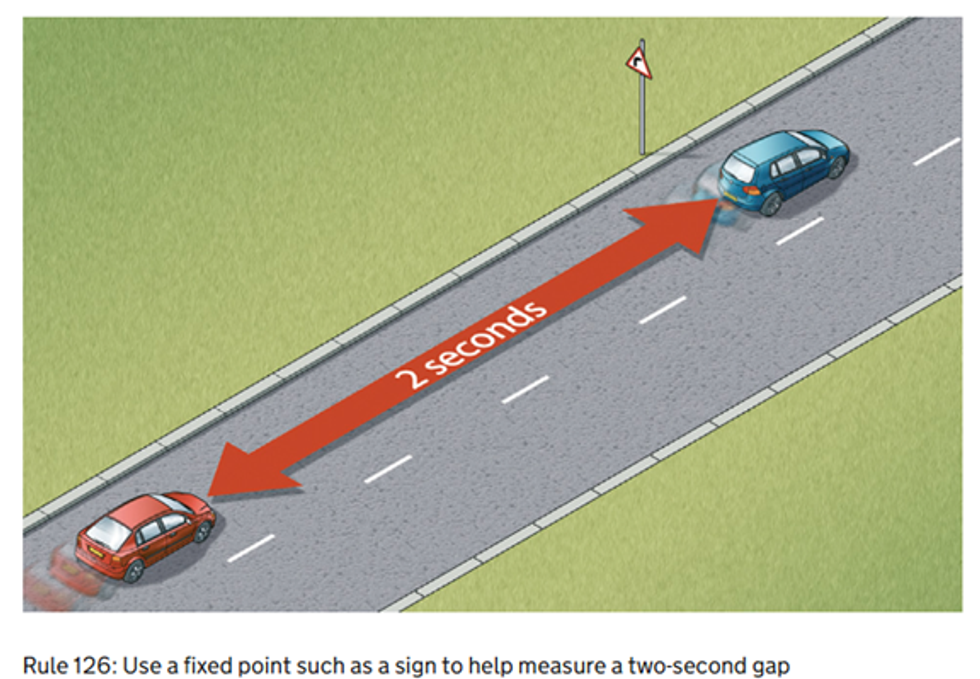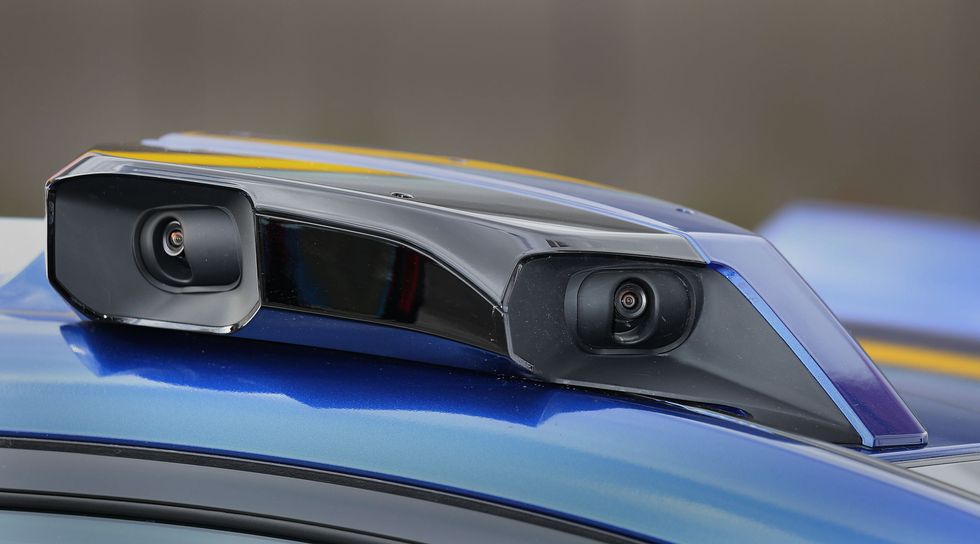Drivers warned of little-known Highway Code rule 'enforced by police' that millions are breaking

WATCH: Eamonn Holmes admits he hadn't realised the Highway Code had changed
|GB NEWS

'Regardless of motorways or local streets, drivers feel intimidated by others following too close behind'
Don't Miss
Most Read
Latest
Millions of drivers could be breaking crucial road rules, according to new data, as experts call on motorists to ensure they are keeping a suitable distance.
One-third of British motorists have admitted to ignoring or being unaware of the "two-second gap" rule, which is a key factor for safe driving.
A quarter of drivers claimed that they knew of the rule, but would often ignore it, while five per cent said they were unaware of the guidance in the Highway Code.
The updated research follows on from similar data in 2023, showing that drivers are not taking steps to make themselves and other road users safer.
Do you have a story you'd like to share? Get in touch by emailing motoring@gbnews.uk

Millions of drivers could risk breaking the Highway Code rule when on the road
|PA
It also showed that many drivers exhibited particularly bad driving following the coronavirus pandemic, where the vast majority of drivers saw their time behind the wheel drop drastically.
Rule 126 of the Highway Code states that drivers should use a fixed point, like a road sign, to help measure a two-second gap between them and the driver in front of them.
Failing to do so is considered tailgating, which occurs when the gap between the two vehicles is too small for them to stop safely if the vehicle in front brakes suddenly.
The Highway Code describes tailgating as "dangerous" and "intimidating", adding that it can cause collisions, especially when driving at high speeds, especially on the motorway.

Rule 126 of the Highway Code deals with the issue of tailgating
|GOV.UK
It adds: "Keeping a safe distance from the vehicle in front gives you time to react and stop if necessary. Dangerous and careless driving offences, such as tailgating, are enforced by the police."
Data from National Highways shows that 147 people were killed or seriously injured due to tailgating on England's motorways and major A-roads.
Similarly, statistics from the Department for Transport confirm that tailgating remains an ongoing problem.
It found that most drivers were leaving an average gap of between two and four seconds in free-flow traffic. Worryingly, a quarter of drivers left a gap of less than two seconds.
LATEST DEVELOPMENTS:
- Tourist hotspot could launch new motorhome and campervan rules as existing scheme labelled 'total flop'
- UK car production 'cannot afford to wait' as Labour faces pressure to help crucial industry
- DVSA launches major changes to driving tests offering lifeline to thousands of drivers - 'Significant step'
Tim Rankin, managing director of AA Accident Assist, noted that tailgating had become an "all too regular experience on the roads", suggesting that driving behaviour needs to change.
He continued, saying: "Regardless of motorways or local streets, drivers feel intimidated by others following too close behind.
"Our workload shows that bumpers and the technology within them are the most common repairs.
"As well as vehicle parts, personal injury claims due to tailgating-related crashes are being made. In many cases, these crashes could be avoided simply by backing off the car in front."

Parking sensors often need to be recalibrated following a tailgating-related accident
| PAAlmost three-in-five repairs carried out by AA Accident Assist in 2024 required a new bumper unit, highlighting the prevalence of tailgating on Britain's roads.
When these accidents occur, mechanics also identify the need for parking sensors, cameras and cruise control radar systems to be repaired or recalibrated, especially as vehicles become more technologically advanced.
Rankin added: "Nobody wants to spoil their summer holidays with an avoidable collision. By allowing at least a two-second gap between yourself and the car in front, you significantly reduce the risk of crashing into that vehicle.
"Similarly, if you are being tailgated, where safe to do so, pull over and let them pass. It is better to cut them loose rather than feel frustrated and try to slow them down."










